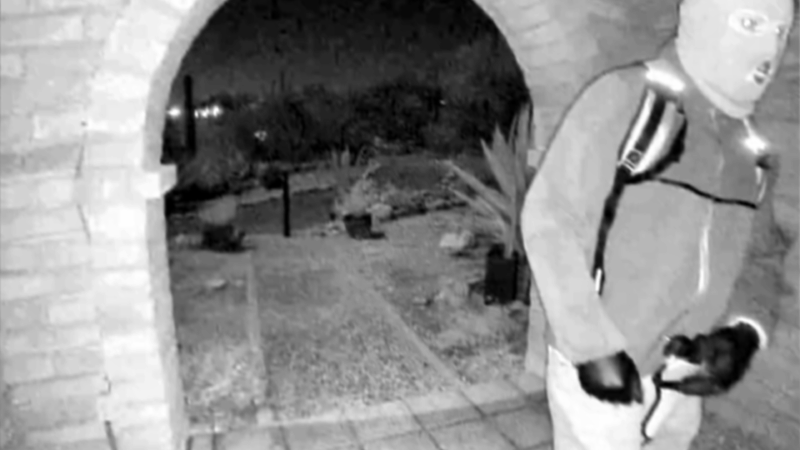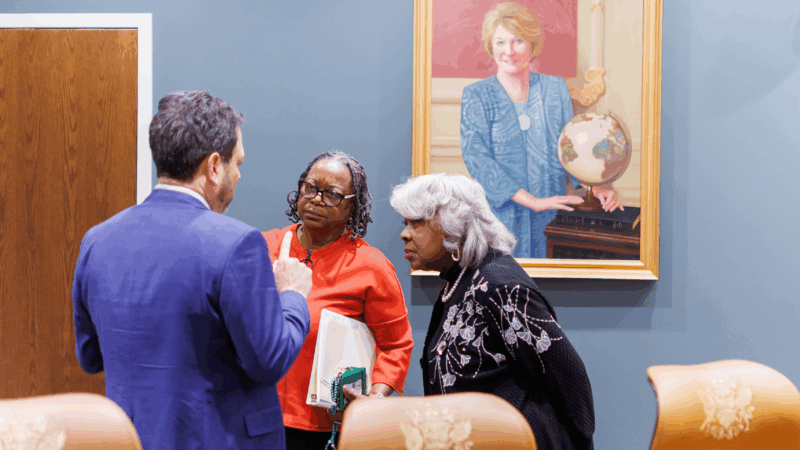Lawyer Assistance Program
For most people, Law School conjures images of a distinguished professor lecturing on contracts or Constitutional issues. In recent years, however, the Cumberland School of Law at Samford University has added to its curriculum, something that hits a lot closer to home – the possibility of substance abuse and depression among law students and attorneys. Jeanne Marie Leslie is a laywyer and recovering alcoholic.
“Lawyers today are under an enormous amount of stress in the practice. Practicing law is adversarial in nature. They work with high-risk clients, they are the fixers. As such taking care of their health and their wellness is really low priority.”
When a lawyer or law student is having problems with substance abuse, they often turn to Leslie. As director of the Lawyer assistance program of the Alabama State Bar Association, she has helped countless legal folks over the years.
“Our clients are under contract , they have to participate in drug screens, they have to go to meetings, lawyer support groups that are facilitated by therapists.
Birmingham attorney Bo Wingo knows the drill well.
“I was sort of at the bottom of the pit. In my own days, when I was drinking a lot of alcohol, I hid it. There were a lot of people who had no idea that I had a drinking problem, because I hid it to the extent that when I needed not to be drinking, I wouldn’t drink, but I was an alcoholic and became an alcoholic early in my life and am still one, I’m a recovering alcoholic, but this didn’t mean I drank every day or drank during the mornings or at work , but there were a lot of signs that would indicate to the common person that this person is an alcoholic, and I would definitely fit into that category.”
In October 2002, Wingo met Jeanne Marie Leslie. With her help and that of the Bar Association, he entered a treatment center – where he stayed for almost four months. Since finishing, he’s joined the staff of the Jefferson County Drug Court – where he can use his personal experience with clients.
“When we see someone in our courtroom or on the street or anywhere, I personally will call them aside, take them into my office, discuss it with them, volunteer to go to an alcoholics anonymous meeting with them, and make it clear to them, and a lot of lawyers don’t know this, I didn’t know it, that there is help within the bar association for them.”
The big challenge, says Jeanne Marie Leslie, is addressing the stigma associated with seeking mental health care – especially for professionals in the legal business.
“We were doing a program for the Law School recently and I threw out the question to first-year law students “What would you do if you walked past your partner’s office and found him drinking in the middle of the day or using drugs?” The answer was a quite honest one, the student said that he would probably just walk on by. Our program offers the opportunity to get someone into the system without getting them into trouble. I don’t think addiction is any different from diabetes, heart disease, or any other kind of illness, and there’s no shame in having depression or any kind of addiction problem. The shame is when you fail to take responsibility for it.”
Leslie calls it the “disease of denial”.
Ilia Malinin, figure skater favored for gold, finishes 8th
Malinin, undefeated since 2023, stumbled and fell multiple times, landing far off the podium. Mikhail Shaidorov of Kazakhstan won gold in an upset that shocked even himself.
DHS says immigration agents appear to have lied about shooting in Minnesota
Julio Cesar Sosa-Celis was shot in the leg during the incident. Another Venezuelan man was also accused of attacking an immigration officer.
Venezuela debates sweeping amnesty for political prisoners
After the fall of Nicolás Maduro, the Venezuelan regime promise amnesty and reconciliation — but for hundreds still jailed and thousands facing charges, justice remains uncertain.
It’s been five years since catastrophic Texas blackouts. How much has changed?
Power companies say they're better prepared for extreme weather, but challenges remain to electricity production as the state's demand grows
FBI releases description of suspect, increases reward in Nancy Guthrie case
The FBI describes the armed man caught on Nancy Guthrie's camera as 5-foot-9-inches to 5-foot-10 and of average build. The 84-year-old mother of Savannah Guthrie has been missing since Feb. 1.
Virginia court allows Democrats’ redistricting vote in their plan to counter to Trump
The ruling allows an April election where voters can let the legislature draw a new congressional map. It could help Democrats win more House seats. Republicans might still fight it in court.







